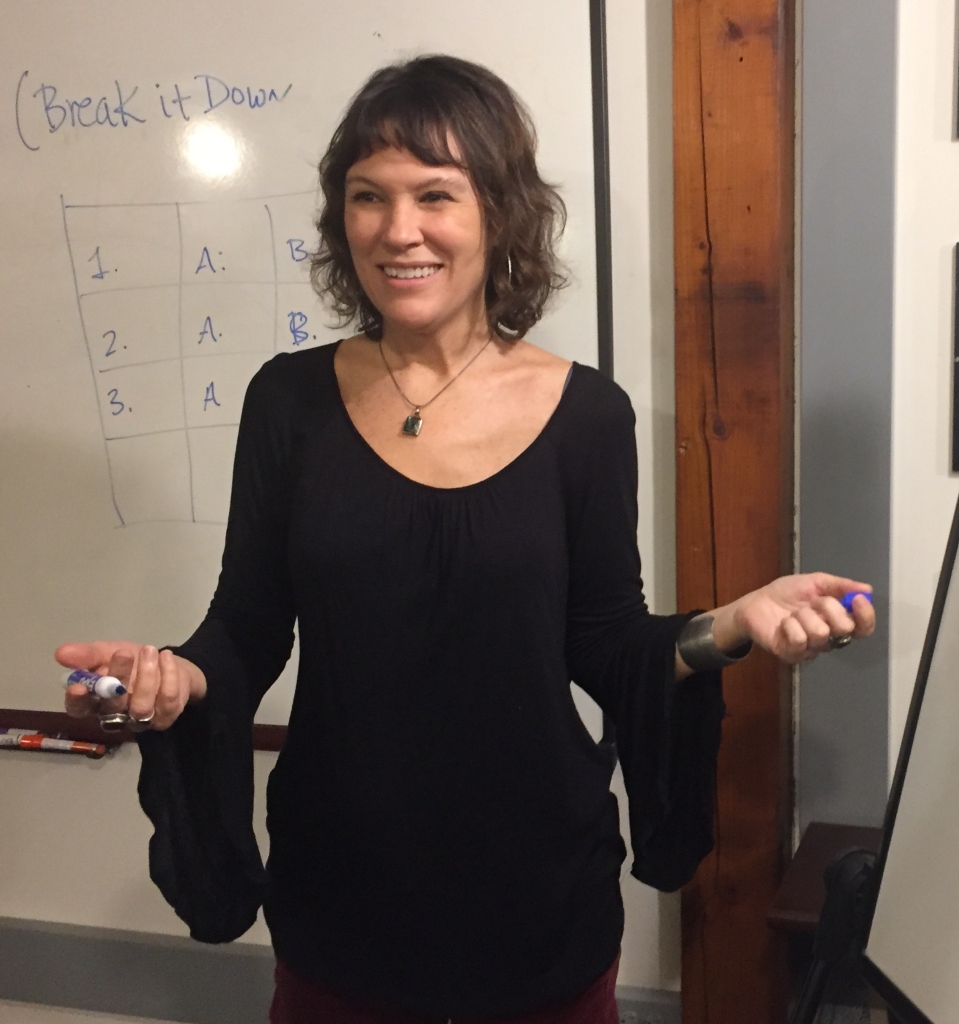
A sample of some of the classes I have recently taught.
Making the Most of Your Revisions, Richard Hugo House
Revision is part of writing. What and how to revise often becomes confusing causing writers to wonder if their rewrites are enhancing their story or merely “rearranging the deck chairs.” With nearly twenty years of experience as a developmental editor, Corbin has learned that almost all manuscripts and stories have most if not all of these five flaws: lack of theme, troublesome arcs, problematic point of view, redundancy (and the opposite), and poor pacing. She will explain these problems and offer tips on how to avoid them.
Identifying Your Theme, Richard Hugo House
Identifying the theme of your story is one of the most difficult, yet crucial, components to writing. Themes act as guides writers can follow throughout the writing process. They let you know what needs to be included in the story and what needs to be left out. Knowing your theme also helps you pace your story from beginning to end in the most compelling way. Participants will leave this workshop with a succinct answer to the dreaded, “What is your piece about?” question.
Write in the Harbor Conference, Gig Harbor, Wa
I will be offering two workshops at this conference:
Publishing 101
Whether you have an article, short story or entire manuscript, navigating how and where to publish it can be daunting. How do you find magazines and journals for your stories? Do you need an agent to publish a book? What are small presses? What are the pros and cons of self publishing and how do you do it? What is a pitch versus a query? All of these questions and more will covered as well as general explanations to the various publishing options available to you.
Five Most Common Flaws
Revision is part of writing. What and how to revise often becomes confusing causing writers to wonder if their rewrites are enhancing their story or merely “rearranging the deck chairs.” With nearly twenty years of experience as a developmental editor, Corbin has learned that almost all manuscripts and stories have most if not all of these five flaws: lack of theme, troublesome arcs, problematic point of view, redundancy (and the opposite), and poor pacing. She will explain these problems and offer tips on how to avoid them.
Thank you for an enlivening and delightful session yesterday. All the “regulars” who attended came up to me with big eyes and said THIS WAS GREAT! “I’m so glad,” I answered, “What was great about it for you?” “Just everything.” Seriously, I had that conversation many times. To capture the attention of seasoned writers as well as the more “pleasure writers” is a success indeed. Your presence and generosity set the tone. All that plus markers? Such a win.
Thank you Thank you Thank you
Beth, Workshop Convener
Writing About Your Profession, Richard Hugo House
Many professionals want to share their career knowledge, but don’t know where to begin. A series of articles? A book? How do they distinguish their work from others’ work? Should they incorporate personal stories into the content? (Successful examples of this kind of writing include Working Stiff, Maid, and Delancey.) Through in-class exercises, participants will craft their themes, clearly define their message, identify why they are uniquely skilled to convey this message, and learn the steps they need to take to accomplish their goal.
Crafting a Personal Essay, chuckanut writers
Do you have a personal essay you want to write but don’t know where to start or end, what to put in or leave out? Writing begins with determining both the story you want to write and the story arc that drives it, which isn’t as simple as it sounds. Memoir author Corbin Lewars has 20 years of experience teaching writers how to structure and write their story. She will teach you how to bring your story to life through dialogue, pacing, character development, epiphany, and other proven narrative writing techniques.
Writing Through Change, Change Through Writing, swedish hospital
As a writer, you are probably familiar with the benefits of writing through life’s transitions. Scientific research supports this notion by stating that the act of writing reduces stress as well as removes mental blocks, which allows us to use our brainpower to better understand ourselves and others and solve our problems more effectively. Writing not only changes us, describing our change and epiphanies enriches our writing. Corbin will lead writing exercises and facilitated conversations on how to best utilize your writing when facing change and how best to describe your transformations and realizations in your writing. Shared reading from authors such as Cheryl Strayed, Brenda Miller, Sage Cohen, Augusten Burroughs, and Natalie Goldberg will help illustrate these points.
The class is designed to be small and supportive and writers of all levels are welcome.
Excellent, engaging valuable class, thank you. It was well organized, managed and facilitated. You inspired ideas for me that led to real results and progress by the end. I left with a ton of ideas generated and feeling as if I already have made progress on my writing.
Chris, Consultant

